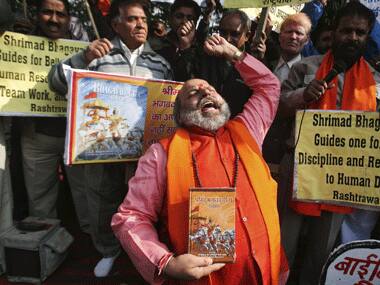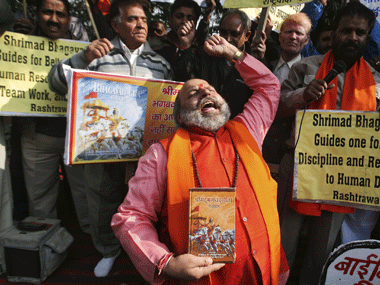Apar Gupta Shortly after completing my masters, I returned to active litigation in India and one of the first cases assigned to me by my employer was a case of book banning. The book, authored by a senior politician, was banned by a notification under Section 95 of the Code of Criminal Procedure. Section 95 gives the state government the right to ban books that violate various provisions of the Indian Penal Code. However, each such banning order must be published in the official gazette and be made public. The state government must also explain why the book has been banned and why it has been deemed illegal. In this case, the state government didn’t comply with these requirements. On the face of it, this seemed to be a direct deprivation of the fundamental right to freedom of speech and expression. [caption id=“attachment_1387593” align=“alignleft” width=“380”]  A representational image. Reuters[/caption] As per the author and publisher’s instructions, a fundamental rights writ petition was filed with the Supreme Court in August. The petition alleged infringement of various fundamental rights and a deprivation of natural justice. Promptly, the Supreme court issued a notice, seeking a reply from the State Government by September. In the meanwhile, a documentary filmmaker and a journalist decided to join in and independently contested the ban by filing a case at the state High Court. Their petition stated that though they may not agree with the views expressed in the book, they have a right to read, understand and express their free opinion on it. Within a month, and well before the deadline given by the Supreme Court to the state government, the High Court disposed the case and overturned the ban. The Supreme Court’s extraordinary writ jurisdiction suddenly seemed infructuous and terribly inefficient. This is not a solitary instance. Quite often one finds that rather than the author or the publisher, independent third parties are the ones who challenge book bans issued by state governments. Section 96 specifically allows it and it is in line with the Supreme Court’s interpretation of freedom to speech and expression. However, Section 96 remains one of the few procedural provisions that directly permits appeals by the public at large against censorship. In most cases, the only remedy is a cumbersome writ jurisdiction or filing a public interest litigation (PIL) and as remedies, their scope is limited. News reports highlight attempts at censorship rather than looking at the systemic process following which prohibitory orders are published. Not only do the laws lack transparency, but they also discourage public participation. In view of the recent settlement reached by Penguin Publishers with Shiksha Bachao Andolan in a civil case filed in the Saket Courts, some have urged there be extensive substantive reforms in the Indian Penal Code and even the court system. Many point to the delay in courts and how the mere threat of litigation (as opposed to the ultimate findings of liability) are enough to make publishers capitulate. While changes to sections in the penal code, decriminalisation of defamation are goals which should be constantly worked towards, the law today needs to recognise the existence of public interest through procedure. A marketplace of ideas can only survive if the public injury in any act of censorship is acknowledged and recorded. To enable this, third parties should be formally allowed to implead. Since, the law already allows the offended to complain, I imagine third parties would get involved to support the defendants, rather than the offended plaintiffs or complainants. When recognised by legislation under a defined process, such remedies wouldn’t complicate cases, but lend some gravitas to the eloquence of our fundamental rights. Perhaps there could be a special docket for cases that impact freedom of speech and are heard after a notice is published by the plaintiffs and the complainants in newspapers. The practicalities of such a process can be negotiated, but first our laws must recognise in procedure as much as in substance that the right to write includes the right to read. The stakes of public interest cannot be subject to a private compromise. In case of the book ban that I described at the start of this piece, the banning order was petitioned by complete strangers who made it possible for the High Court to strike down the ban. The book went on to be a best seller, but that wasn’t the end of its story. There followed well-documented allegations of plagiarism and inaccuracy against the author and the book. These wouldn’t have been noticed or recorded had the state government’s book ban been enforced. In hindsight, it all worked out better than a ban could have and everyone went home happy. Apar Gupta is an advocate practising in Delhi.
Quite often one finds that rather than the author or the publisher, independent third parties are the ones who challenge book bans issued by state governments.
Advertisement
End of Article
Written by FP Archives
see more


)
)
)
)
)
)
)
)
)



